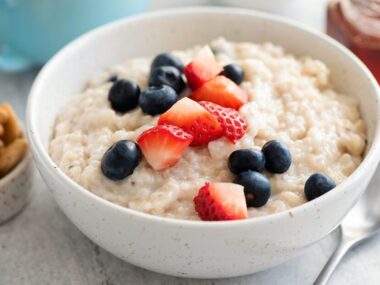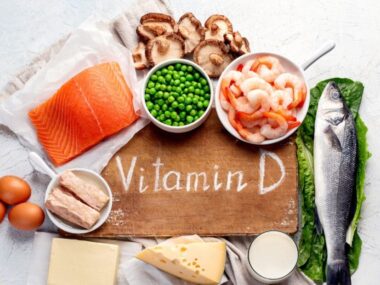Are you a egg lover? Do you honestly like eggs? Then the boiled-egg diet might be appealing to you — particularly if you’re looking to lose weight quickly. The fact is that this fad diet will not result in long-term changes that improve your health. Still want to know? Read on to understand how this diet works, its pros and cons, and how to follow it safely.
What Is the Boiled-Egg Diet?
The boiled-egg diet is a diet that focuses on eggs, particularly hard-boiled eggs. You consume a minimum of two or three eggs per day, and you don’t even have to add them into every meal. Why would someone want to eat this way?
It has a some sought of support from celebrities: Nicole Kidman reportedly ate only hard-boiled eggs before starring in Cold Mountain, according to Vogue Italia. (1) Charles Saatchi, the ex-husband of chef Nigella Lawson and the founder of the ad agency Saatchi & Saatchi, has also done the boiled-egg diet, according to some publications, such as the Daily Mail.
How Does the Boiled-Egg Diet Work?
There are many versions of the boiled-egg diet, according to the e-book The Boiled Egg Diet: The Easy, Fast Way to Weight Loss!, by Arielle Chandler. We’ll into the different options below, but the basic version is similar to low-carb Atkins, writes Chandler, and requires eating:
Lunch Eggs or lean protein and low-carb vegetables
Dinner Eggs or lean protein and low-carb vegetables
Breakfast At least two eggs and one piece of fruit (low-carb vegetable or protein optional)
Is the Boiled-Egg Diet Safe for You?
Overall, this diet is healthy, but it’s not a balanced, healthy diet. The boiled-egg diet is extremely restrictive, incredibly low-calorie, and faddish. “I don’t think you should be on a diet that requires an obsession with one food,” says Lisa Young, PhD, RDN, the New York City–based author of Finally Full, Finally Slim.
The essence of the diet — eggs — is a food that’s healthy for you — just not as your only or main food. The American Heart Association says that one egg (or two egg whites) per day can be part of a healthy diet. “Eggs make a good breakfast. A hard-boiled egg is a nutritious snack, but I think that consuming a variety of foods is a healthier way to eat,” says Dr. Young.
The appealing thing about eggs is that they’re high in protein. One large boiled egg offers 71 calories, 6 grams (g) of protein, 5 g of fat, 0.4 g of carbohydrates, and 0 g fiber, according to the U.S. Department of Agriculture (USDA). “Eggs are a complete protein and contain nutrients like vitamin D and choline,” says Amy Shapiro, RD, CDN, the founder and director of Real Nutrition in New York City. (A complete protein is one that contains all the essential amino acids, according to the U.S. Food and Drug Administration [FDA].) Choline is a nutrient that helps produce neurotransmitters that regulate memory and mood, among other functions, according to the National Institutes of Health.
Though some past research has linked breakfasts high in protein that contain eggs with helping dieters shed pounds, “there’s nothing magical about eggs for weight loss,” says Shapiro.
What are the Side Effects of Eating Mostly Boiled Eggs?
This diet is very low calorie and restricts many high-fiber foods like whole grains and beans. Because of that, you may miss the mark on fiber if you’re not careful. It’s recommended that men ages 50 and younger get at least 38 g of fiber and women get at least 25 g of fiber, per the Mayo Clinic. Go too low and you may be at risk of constipation. The risk of constipation is especially high if you eat only eggs, as eggs have zero grams of fiber.
Is It Safe to Follow the Boiled-Egg Diet?
If you follow the boiled-egg diet for a short period and you’re generally healthy, it’s unlikely to cause any problems. “I consider this a red-carpet diet. It’s only something to try when you want to see results quickly and you’re okay with feeling restricted for a short period of time,” says Shapiro. She notes that this diet takes its cues from the 1960s, a time when “it was considered ladylike and demure to restrict yourself,” she says. But it goes without saying that that’s not a healthy headspace to be in.
Also, there is continuing confusion about whether or not eggs are good for you, as they contain dietary cholesterol. Each egg has 184 milligrams (mg) of cholesterol, according to the USDA. A study published in March 2019 in the Journal of the American Medical Association concluded that each additional 300 mg of dietary cholesterol consumed per day was associated with a 17 and 18 percent increased risk, respectively, of cardiovascular disease and death from any cause. Meanwhile, another study, which was published in May 2018 in the American Journal of Nutrition, suggested that cholesterol is less risky in adults with prediabetes and type 2 diabetes. Authors reported that participants who consumed a “high-egg diet” for three months did not experience changes in blood lipid levels or markers of inflammation (which would indicate a change in cardiovascular health) compared with those on a low-egg diet. Researchers defined a high-egg diet as consuming 12 or more eggs per week, while they said a low-egg diet involved eating fewer than 2 eggs per week.
Though some people continue to show concern over dietary cholesterol, the limit was removed from the 2015–2020 Dietary Guidelines. But, the guidelines read, “this change does not suggest that dietary cholesterol is no longer important to consider when building healthy eating patterns”; going on to advise people to “consume as little dietary cholesterol as possible.”
Eggs are also flagged for their saturated fat content. Each large egg contains 1.5 g of saturated fat. The guidelines recommend capping daily intake of saturated fat at less than 10 percent of calories per day for optimal heart health.





